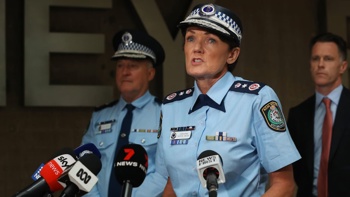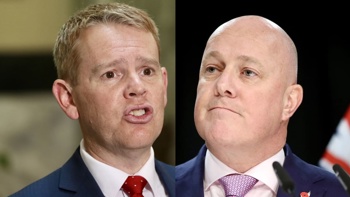Whoever came up with the idea of goal setting really opened a Pandora’s box of wishful thinking.
For the modern interpretation of goal setting, you can blame a bloke called Edwin Locke. He was an American psychologist from the University of Maryland who has studied the power of goal setting in the 1960s. He first suggested that employees were motivated by goals and feedback in his 1968 article "Toward a Theory of Task Motivation and Incentives”. In it he says individuals who set specific, difficult goals performed better than those who set general, easy goals.
Since then athletes and business leaders have banged on about it and so eventually so did politicians and it seems to have spread like topsy amongst them. And to make them easy to understand our politicians have defined our goals by setting targets. So now we have a raft of targets to achieve. Smokefree 2025. Predator Free 2050. Possum free 2030. We target zero deaths on our roads. We have 3 goals on emissions reductions ending in 2020, 2030 and 2050. The Government has set a target of getting 50 percent representation of women on state sector boards by 2021. And on they go.
But my problem with many of these targets is that they’re as achievable as me saying I’d like to be 2 inches taller in 2 years time. And the other problem is that many politicians think that just verbalising the goal or target is enough. That the target is the end in itself. And of course all these general targets go right against Edwin Locke’s theory that the goals must be specific and not general.
So here we go again.
Nikki Kaye has a private members bill in front of the house that would require every primary and intermediate school to offer at least one second language from a list of at least 10 "national priority languages". Its goal is to get every student able to converse in at least 2 languages. It’s a lovely thought however the bill is low on details of how to do this. Chris Hipkins estimates that to put a language teacher in every school would cost an extra $120 million a year. And that’s not even offering a choice. So it’s expensive. It also doesn’t look at where all these language teachers are going to come from. It’s a sort of chicken and egg situation. We need more language teachers so we can teach more language so we can have more language teachers.
And now the Greens have predictably done it during Māori Language Week. The Green Party is pushing for te reo Māori to be a core curriculum topic in all schools by 2025. And when they say core they mean compulsory which raises all sorts of issues.
Now the arguments against Nikki Kayes waffly bill exist for this one as well. To have a te reo teacher in every school would cost the same $120 million a year. And by putting a date on this it becomes ever more airy-fairy. 2025 is just over 6 years away. Good luck in finding 3000 odd new te reo teachers in that time frame.
Let’s talk about realistic goals. In the last budget, an extra $20 million was given towards Māori language teacher education. Maybe we should be doubling the budget with the goal of doubling the teachers with another goal of doubling the literacy within 5 years. And when we get to a tipping point of capability then we can start talking about something more universal.
And on a flippant note, could we have a goal of having goals that don’t have a mythical target date on them. And we could meet that target tomorrow.
Take your Radio, Podcasts and Music with you









